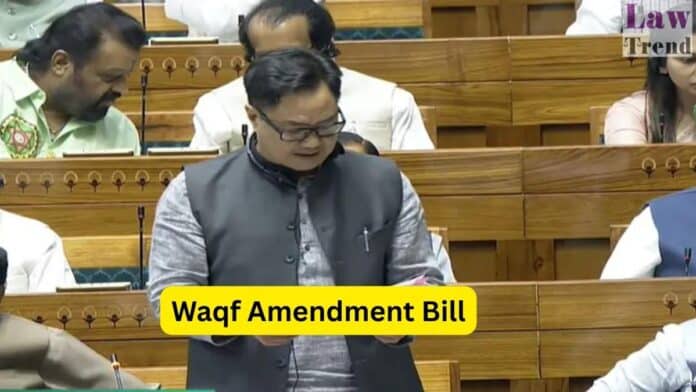In a heated session of the Lok Sabha on Wednesday, Union Minister Kiren Rijiju introduced the Waqf Amendment Bill, which has sparked controversy between the ruling BJP and opposition parties. Rijiju claimed that if not for BJP’s intervention, the previous Congress government could have potentially allowed significant properties, including the Parliament building, to be claimed as waqf properties.
The bill, aiming to amend the Waqf Act of 1995, is designed to manage properties donated by Muslims more effectively. Rijiju argued that amendments were necessary to rectify the changes made by the previous government that gave the Waqf Act an overriding effect over other statutes. He highlighted that under Congress rule, 123 properties were denotified and handed over to the Waqf Board, emphasizing the urgency of the amendment to prevent such actions in the future.
Rijiju reassured that the bill does not seek to take away land or mosques from the Muslim community, clarifying that the amendments intend to create a “secular and inclusive” Waqf, focusing on transparency and accountability in managing Waqf properties. The bill stipulates that the Waqf Council must include a maximum of four non-Muslim members, including two women, to ensure diverse representation.
Countering Rijiju’s statements, Congress MP Gaurav Gogoi accused the BJP of attempting to disenfranchise the Muslim community through the bill. Brandishing a copy of the Constitution, Gogoi argued that the bill’s true intent was to defame and divide the country, further straining the communal harmony.
Union Home Minister Amit Shah defended the bill’s thorough examination process, contrasting it with the practices under the Congress government. He stated, “Our committee discusses, deliberates based on discussions, and makes changes.”
The Lok Sabha has allocated eight hours for the debate and passage of the bill, after which it will move to the Rajya Sabha for further discussion on April 3. The introduction of the Waqf Amendment Bill marks yet another pivotal moment in the ongoing tug-of-war over policy and governance between the BJP and the opposition.




